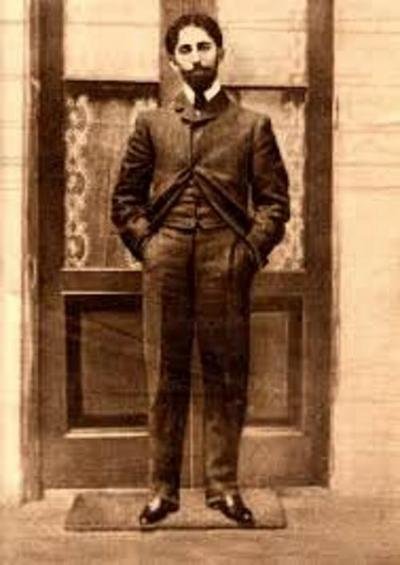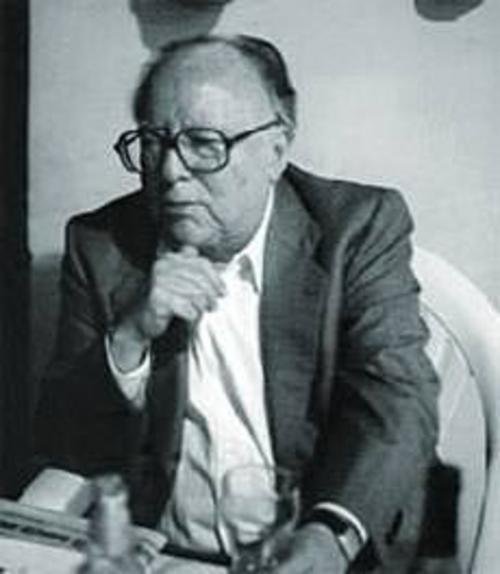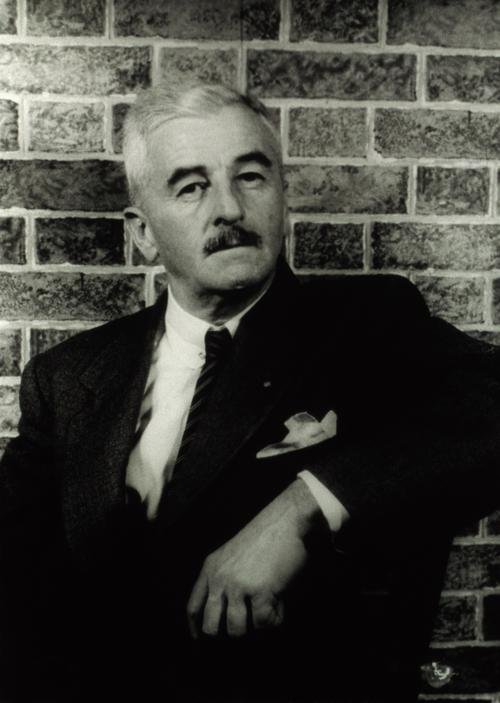ADSactly Literature: GREAT WRITERS TELL YOU HOW TO BECOME A WRITER II

GREAT WRITERS TELL YOU HOW TO BECOME A WRITER II
In the last installment see here we read some secrets that have worked for writers such as Stephen King, Mark Twain, Edgar Allan Poe, Margaret Atwood and Ray Bradbury, all renowned writers of great trajectory. In this part we will see five other authors who will give us some tips to make the writing process an enjoyable and productive experience.

6- Horacio Quiroga
This Uruguayan narrator, considered one of the greatest Latin American storytellers of all time, recommends us:

He believes in a master -Poe, Maupassant, Kipling, Chekhov- as in God himself.
This advice is based on the idea of reading. When we read, we tend to have favorite writers. Let's make those writers our teachers (of course let's look for the best), our guides, our inspiration. If we have a favorite writer, it's because surely we don't only like the themes he raises, but also the tone, the way he proposes things. Surely, a writer who has a clear idea of what he likes or is attracted to, will have a clearer idea of what he is looking for in his work and how to tell his stories or do his texts.
Resist imitation as much as you can, but imitate if the influence is too strong. More than anything else, personality development is a long patience.
This advice, in some way or another, is linked to the previous one. When we have favorite writers, we tend, sometimes unconsciously, to try to imitate their voice, their tone, the use of language. If you are just beginning, it is valid and can even be justified. Writing has some mimicry. But if the idea is to advance and mature as a writer, what you should do is look for your own voice, your own rhythm, your own style. The ideal is for anyone to be able to recognize your texts above others, to be able to differentiate them because there is something in the content and form of the story that is unique only in your writing. But as the advice says: to achieve that privilege you must have a lot of patience and experimentation.
Take your characters by the hand and carry them firmly to the end, seeing nothing but the path you traced out for them.
Normally we dilute in the way when we write. When we start a story we must be aware of who our characters are and what we want for them. It's easy for them to take a life of their own and get out of your hands. So the ideal is that you characterize them very well, that you know how they're going to act, what they're going to do, even the most insignificant ones, and how they're going to disappear. Some stories tend to be bad because there is no coherence between the characters and the story, there is no plausibility.

7- Augusto Monterroso
One of the most successful and internationally recognized Guatemalan writers. From his experience as a writer, he tells us:

When you have something to say, say it; when you don't, say it too. Always write.
This advice had already appeared in the previous part. Writing can be seen as an exercise, as a daily task. From Monterroso's advice we can deduce that not only are we going to wait for inspiration, but that we must oblige ourselves to write. The practice of writing can achieve more fluidity in the hands and even more fluidity when thinking about a story: a mental speed. Like any greased machine, the writer who has the concern and care to develop his ideas on a daily basis will surely find it easier to start, develop and complete his stories.
In no case should one forget the famous díctum: "In literature there is nothing new".
If anyone has difficulty writing, it is the writer. Because of the readings he has made, the writer doubts his writing, what he writes and the way he does it, especially because he fears falling into one of the previous tips: imitation. But what you must deprive in your writing is not originality, but you are expressing what you want to say and how you want to do it. Perhaps some texts stand out and survive the passage of time because of their subject matter, but many do so because of the way in which they were approached, the language used, the structure in which they are made. So don't look for originality, look for your own style, your own voice, there is no doubt that there is no other, maybe there is one similar, but yours belongs to you and for what you want to achieve, using your style is the best.
He believes in you, but not so much; he doubts you, but not so much. When you feel doubt, believe; when you believe, doubt. This is the only true wisdom that can accompany a writer.
This recommendation is the most popular and accepted among writers. In the previous advice I told you that if there is one person who finds it hard to write, it is the writer because, just as he has read good works, he doubts what he is doing. For what Monterroso recommends, there must be a balance: Don't doubt so much that you're paralyzed, but doubt if you're running. If you are in front of the blank page, don't fear it, but don't feel that you can win the battle without doing anything.

8- John Grisham
American writer and lawyer. He is known for his intrigue and suspense novels set in the American judicial system, several of which have been taken to the cinema. From his experience as a writer he can say:

Works with constancy
This advice is like a shot to the ground: safe in all writers. Working seems to be the secret of success in any job. It is credible that a person who wants to write a story or a novel should engage in writing. A person who wants to be a writer must write daily, work on his or her failures, try to improve, perfect himself or herself. Any artist who wants to see his work done, no matter how experienced, must devote time and effort to it. Not one day, not two, but every day. Writing is like playing an instrument: the more you practice, the closer you will be to excellence.
Make a writing plan
We know that some writers usually write in the early hours or morning, others prefer the afternoon or night, the important thing is that each of these writers has a routine of work. Knowing that the computer is waiting for you, for example, after a nap or at the end of the night, will surely make your body and mind ready for that moment. The important thing is that you make a schedule, that you are disciplined not only with yourself, but with the writing that will be waiting for you to take it as the lover awaits his beloved.
Do not write the beginning until you have clear the end.
To begin without knowing the end of your story is to begin erratically and without much sense. It's like walking without any direction: maybe you won't get anywhere or maybe you'll have a harder time getting where you'd like to go. If we have the end of the story, it is as if we have the treasure map: we know how many steps to take to get there. So don't start writing without being clear about what you want. For that you can make an outline, even if it's mental, where you have clear not only what you're going to do with the characters, but with the development to reach the end you've set yourself.

9- Gabriel García Márquez
This renowned Colombian author undoubtedly stood out as one of the greatest narrators of 20th century literature, a fundamental piece of the well-known Latin American boom, above all for his work within magical realism. Here are some brief tips:

Write about what you know
Avoid talking about things you don't know. The reader not only notices when a writer doesn't handle the subject, but also appreciates that he doesn't do it. When you deal with subjects that you don't know, not only will it mean more work for you, since you will have to research and document yourself in order to develop your story, but the work will surely not be as fluid as it should be.
The first paragraph is the most important.
We talked about the fundamentals of knowing the end, but you must bear in mind the importance of the first paragraph. The beginning of any text is like your cover letter, the window of a shop: if there is nothing interesting, no one will enter. The idea is to make that beginning so appealing that the reader gets hooked. That from the reading of that first paragraph you can imagine the exceptional world that you can find by reading on. The reader must be seduced and convinced to continue reading, and you can achieve this with a good opening paragraph.
Take care of your health.
This recommendation is new but important. There are areas of the body that can suffer if we spend a lot of time in front of the computer. The ideal is that we can find a way not to damage so much those organs or parts, such as the eyes, fingers or hands, the back, the coccyx, the neck. It is advisable to have a good chair, that the screen is at a certain distance from your eyes and at an adequate height. It is also recommended that you get up from time to time, that you use eye drops and even that you do a neck and back exercise session. But you could look for someone to give you a massage, and that would be perfect.

10- William Faulkner
American writer. He is one of the great novelists of all time and, in the interwar period, he promoted the renewal of narrative techniques with his work. His three councils:

You must have talent, discipline and work
I wanted to finish with this author because it seems to me that he collects many of the things we have mentioned before. As we can see, to be a writer you not only need talent, which is fundamental in all professions, but there must also be dedication and a willingness to work. You can have aptitude and ability to write, but if you don't get to perfect the technique, if there is no commitment to do the work daily, surely you won't achieve your goal and you will be a writer of the lot. The idea is that you help nature and if God gave you wit to write, the ideal is that you commit to do it.
You must have experience, observation and imagination.
The writer must learn to develop all the senses, to be a sponge that traps everything in its environment and be able to shape it in the most life-giving way possible. Similarly, have the creativity and imagination to build paper worlds where not only can he live but anyone who comes close can also imagine being part of that world, recreate it. Observation and creativity are tools that can be acquired with patience and, of course, with a lot of work.
For the writer there are no tips or formulas.
And we have reached the mother of all recommendations: a good writer does not follow formulas or manuals. We have come this far to find out that all the recommendations they may give us may be simple guides, but they will not be significant, since the important thing about all scriptural activity is the impulse of each individual, his or her abilities, passion, vocation, creativity. We must learn to doubt the advice, there are no universal rules for the profession of writing. Dare to think differently, to be weird, a green dog or a blue one. The important thing is to follow your instinct, your sense of smell in order to become a good writer. If you want to be different, you can't follow someone else's steps. Learn to make your own way and invent your own rules.
You can't become a good singer because you sing every day, you are a singer because you not only sing every day, but also because you perfect your talent, prepare yourself, innovate. It's the same with the writer. The formation of a writer can be complex and requires the participation of many elements, but the most important is the individual responsibility to be formed. To know that it is not what he says but the way in which he says it. One does not write for oneself, one does it to reveal oneself and to show oneself, to communicate, hence we look for the best way to do it.
I hope you found this post interesting and productive. I also hope you can vote for @adsactly as witnesses and join our server in discord. Until the next smile.
BIBLIOGRAPHIC REFERENCES
http://guialiteraria.blogspot.com/2013/09/100-consejos-para-escritores.html
https://www.biografiasyvidas.com/biografia/q/quiroga_horacio.htm
http://www.lecturalia.com/autor/45/john-grisham
https://www.biografiasyvidas.com/reportaje/garcia_marquez/
https://www.biografiasyvidas.com/biografia/m/monterroso.htm
https://www.biografiasyvidas.com/biografia/f/faulkner.htm
Written by: @nancybriti
Click on the coin to join our Discord Chat

Witness proposal is here:
Go To Steem Witness Page
In the bottom of the page type: adsactly-witness and press vote.

Use small letters and no "@" sign. Or, click here to vote directly!
Thank you!
One of the most wonderful articles about all his writers is written. All the writers have a lot of respect and are written with respect. Being a student, I got a lot of learning from your article and wrote a very complete explanation.I want to benefit from your experience I hope you'll write the same article next. Thank You so Much for this article.
It's a good thing he's useful to you. Thank you for commenting!
Welcome Maim.
All these are tips to keep in mind and much more coming from great writers. Most people agree that to be a good writer you have to read and write a lot, but you also have to be disciplined and committed to this task. Maintaining constancy in writing is a good exercise to develop it even more. We must also consider Gabriel García Márquez's advice to take care of our health, because many times the hours in front of the computer or the paper pass without realizing it, when we are there we feel immersed in a different time than the one that takes place outside and this can be counterproductive for our health. Thank you @nancybriti for another quality publication and @adsactly for sharing it.
That's my dear, @aurodivys! Before taking into account the other recommendations and starting to implement others, it is necessary that we prioritize health above all. I doubt that a person can spend long hours in front of a computer with back pain or at least not with the best taste, and writing is not only discipline, it is also passion and taste. Thank you for commenting!
A very well portrait of all the writers and as i was looking towards becoming a good writer so now this will really gona help me out thanks buddy.
Posted using Partiko Android
Oh, that's good, @sumit71428. I hope it can help you get your handwriting forward. Thank you for commenting!
The continuation of your search on recommendations for better literary writing is very well completed in this part, @nancybriti. The tips are that, only orientations, suggestions, possibilities; if someone takes them as recipes or panaceas, he is absolutely wrong. Personally, I share many of them. I agree on the need for doubt, as long as it is not paralyzing. Also in the combination of work and discipline, but, in the same way, in the idea of daring to write what you feel or want. And in the latter privilege the experience and observation of the self and the exterior. Thank you for your synthesis and comments, and @adsactly for promoting your good post.
I'm glad you liked this part and agree with some of the recommendations, @josemalavem. Also that you put into practice many of them. I think that between reading, writing and working on a daily basis you can summarize all the tips for those who want to write better. Thank you for commenting!
Very well, sir . Your articles are too long . I read it . you are a great writer .
Thank you for reading it.
What an impressive list Nancy. Both parts.
I have studied and read many of these authors. I think that Stephen King's "On Writing" is one of my most important resources. I've read it at least once a year since it was published.
I love to compare Faulkner and his hundred word sentences with Hemmingway and his three word efforts. Both have something to tell me...
Thanks Nancy. Per normal it's well written and thought out. I really do appreciate it.